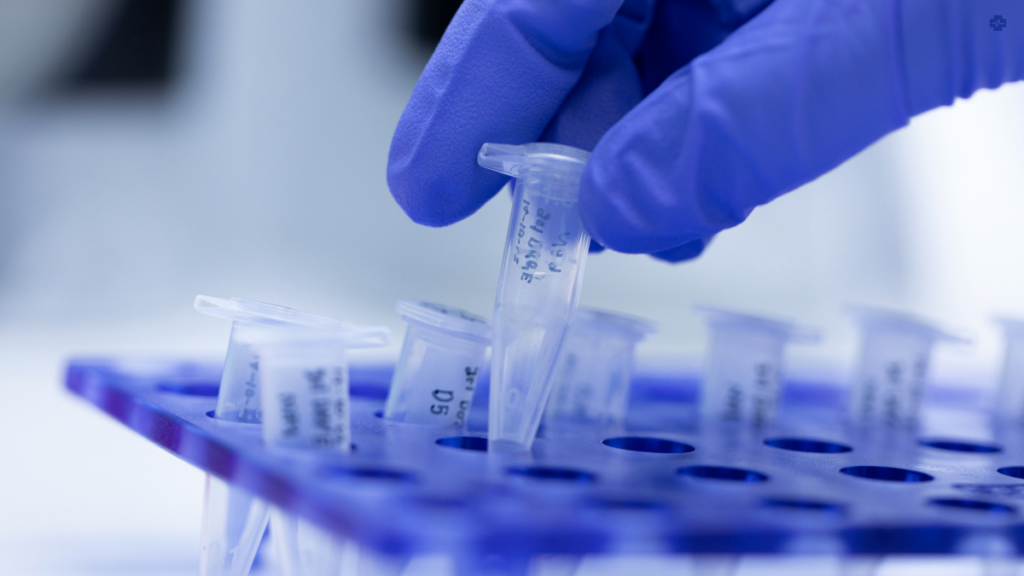Sexually transmitted diseases (STDs) are scary. And they continue to be a significant public health challenge. With infection rates fluctuating worldwide the efforts to reduce STDs continues. Despite efforts to improve awareness and encourage regular testing, the spread of STDs remains an issue. Recent advancements in technology, such as Multiplex PCR, are beginning to transform STD testing. They are providing faster, more comprehensive, and efficient diagnostic options. This technology could play a key role in reducing infection rates. Promoting better public health outcomes for all.
What is Multiplex PCR?
Multiplex PCR, or Polymerase Chain Reaction, is a powerful tool that allows multiple DNA sequences to be amplified at the same time within a single reaction. This means that with one sample (such as a swab or blood sample) multiple STDs can be detected at once. A little similar to recent cancer tests that can detect multiple cancers. The key to Multiplex PCR lies in the use of different “primers”. These are small strands of DNA that match specific target sequences from various pathogens. By using several primers, the test can detect multiple infections simultaneously.
This ability to detect many different pathogens from a single sample makes Multiplex PCR extremely efficient for diagnosing co-infections. Sexually transmitted infections often occur together. Being able to identify them all in one test helps healthcare providers create a more effective treatment plan for patients.
Recent Advances in Multiplex PCR for STD Testing
Recent improvements in Multiplex PCR have significantly expanded its detection capabilities. While older versions of these tests were limited to common STDs such as chlamydia, gonorrhoea, trichomoniasis and HPV. Newer versions can now also detect infections like HIV, hepatitis B and C and Mycoplasma genitalium. This broader detection range is crucial for providing a comprehensive picture of a patient’s sexual health. It is helping to identify less common infections alongside more typical ones in a single test.
Point-of-care testing is another key development in the field of Multiplex PCR, where tests would be done directly at the doctor’s office or clinic with test results available under an hour. Fast testing would minimize diagnosis to treatment wait times and thus initiate timely treatment to decrease further risks of infection spread.
Efforts are also being directed towards the automation of the whole process of Multiplex PCR. All steps of sample preparation, nucleic acid extraction, amplification, and detection will be integrated into one workflow. Automation simplifies the testing, reduces the need for skilled technicians, and minimizes contamination risks, thus making the tests easier and more reliable.
Another major focus is improving the cost-effectiveness of Multiplex PCR. Researchers are working on simplifying the technology, optimising reagents and scaling up production. These steps are expected to help lower the overall cost per test. They will be making this advanced form of STD screening more affordable and accessible to a wider portion of the total population.

There is also a trend towards allowing patients to collect their samples at home and send them to a lab for Multiplex PCR analysis. Although it is not a fully at-home test, this hybrid model increases privacy and convenience. It is also potentially encouraging more people to get tested who might otherwise avoid visiting a clinic.
Researchers are continually working to improve the sensitivity and specificity of Multiplex PCR tests. It is critical to reduce false negatives and false positives. Especially important in STD diagnostics, as incorrect results can lead to improper treatment or missed infections. This would allow diseases to spread or cause unnecessary stress for patients. Not to mention ruining relationships and marriages. Improving these aspects ensures that Multiplex PCR remains a reliable and effective tool for STD testing.
This technology also brings significant efficiency benefits. Instead of requiring separate tests for each suspected infection, Multiplex PCR provides a complete picture of a person’s sexual health from one sample. This approach saves time and resources for both patients and healthcare providers, reducing the overall burden and streamlining the testing process. Another key advantage is the ability to detect co-infections early. Since co-infections are common, early identification is essential for effective treatment. Multiplex PCR’s capacity to identify all present infections simultaneously means patients can receive quicker and more targeted care, leading to better health outcomes overall.
However, despite these substantial benefits, there are several challenges that still need to be addressed. One major challenge is the complexity of interpreting results. When multiple infections are detected at once, healthcare providers must be careful in analysing the findings. Mainly to avoid over-treatment or under-treatment, which can impact patient health. Every new version of a Multiplex PCR test requires extensive validation to prove that it is as effective as single-pathogen tests. This validation process is time-consuming and can delay the availability of new improvements.
Another issue is the risk of cross-reactivity, where primers may mistakenly bind to sequences in non-target DNA, resulting in false positives. It is important to do a careful test design and rigorous validation to minimise such errors.
Dr Lisa Thompson, a sexual health expert, noted, “Multiplex PCR could be a game-changer for STD testing, allowing for fast, comprehensive and more private screening. This is a big step forward in helping people take charge of their sexual health”.
The Future of STD Testing with Multiplex PCR
The potential for Multiplex PCR to improve the way we test for STDs is literally huge. By making testing easier, faster, and more comprehensive, more people may feel encouraged to get tested regularly. This is crucial. as timely testing and treatment can help prevent the spread of infections, ultimately leading to lower infection rates and better overall public health.
Dr Thompson added, “The easier we make it for people to access accurate STD testing, the more likely we are to see a real drop in infection rates. Multiplex PCR is a key tool in making that possible.”

